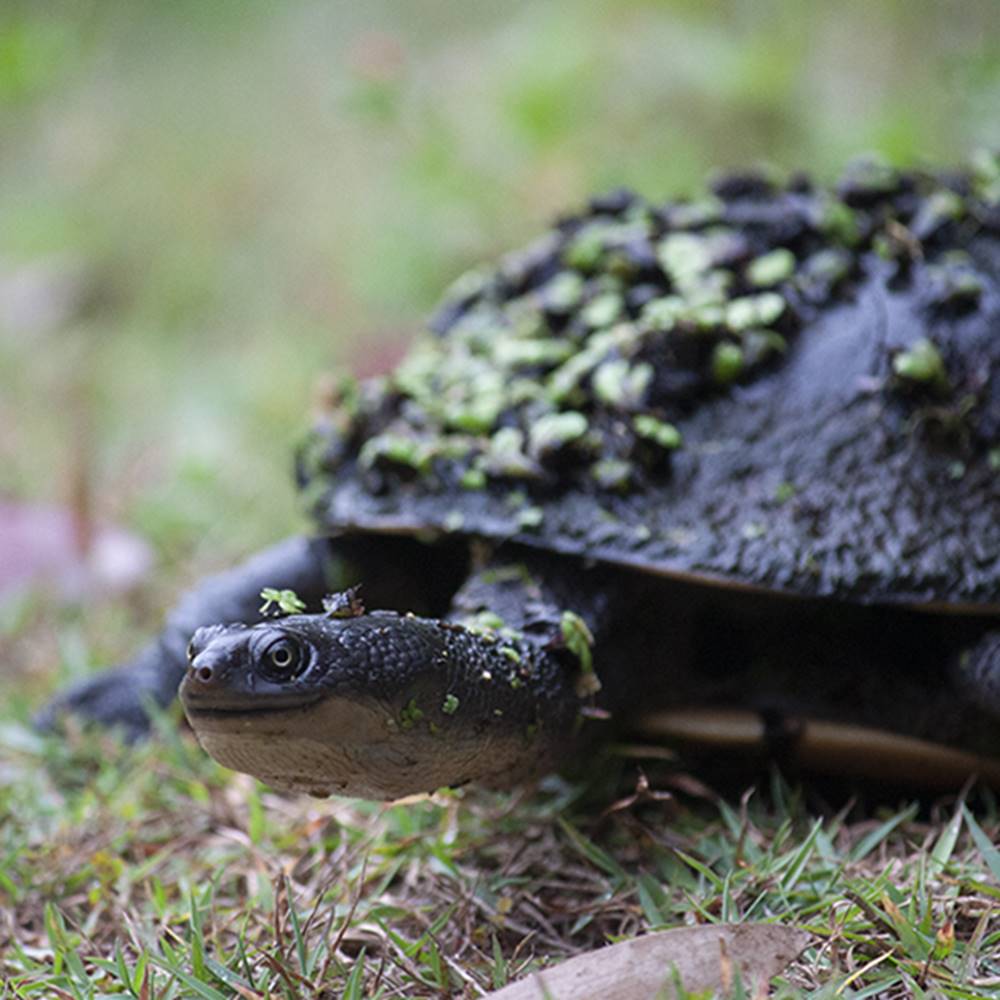
Lizards such as Blue-tongue lizards and Eastern Water dragons can be regularly found in suburban areas, often around pools and ponds, or basking in patches of sunlight on rocks or concrete paths, as the warmth helps them digest their food.
They are usually quite timid and they are not dangerous or venomous, keen gardeners count them as friends as they eat snails and other pest insects.
Turtles may be found on roads or in other unsafe places, particularly after prolonged or heavy rainfall. They may need moving off the road and checking to see if their shell is damaged.
There are three very special freshwater turtles that are endemic to NSW and are found nowhere else in the world. All three of these species are endangered. The Manning River helmeted turtle (pictured) is an ancient species with ancestry going back 55-60 million years. It is found in only one river system in northern NSW.
The species is considered diurnal and can be seen basking during the day on logs, rocks or the river banks near deep pools. Predation and illegal collecting are both threats along with habitat degradation. Distribution is highly fragmented and there is still much to learn about this species.
If you find an injured lizard or turtle, please call WIRES Rescue Line 1300 094 737 or fill in the Rescue Form for assistance.
If you have found a sick or injured lizard or turtle it will need to see a vet before coming into care. If you are able to safely contain it, you can keep it in a quiet, dark place e.g. wrapped in a towel in a ventilated box or carrier with a lid while you transport it to the nearest vet.
If you let WIRES know which vet you have taken the animal to, we will follow up directly with the vet to bring the lizard or turtle into care as soon as it has been vet assessed and received any necessary treatment.
Image: Manning River helmeted turtle @livebyron
To access 24/7 rescue advice and assistance for sick, injured and orphaned native animals call 1300 094 737, or fill in the online rescue form.
Sign Up for Wildlife News
Stay in touch and get our regular rescue stories, WIRES updates and a free copy of our 15 Ways to Help Wildlife ebook
